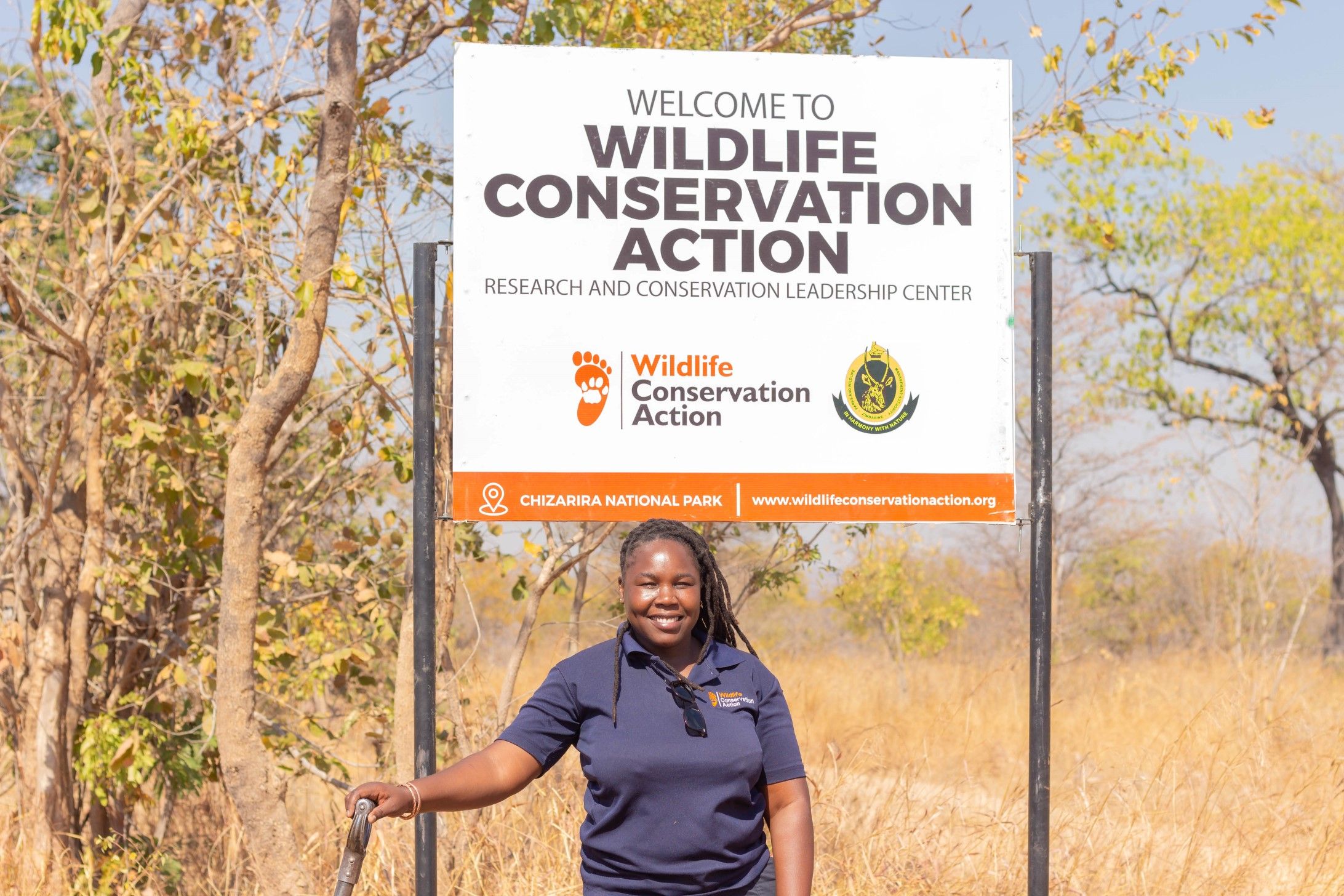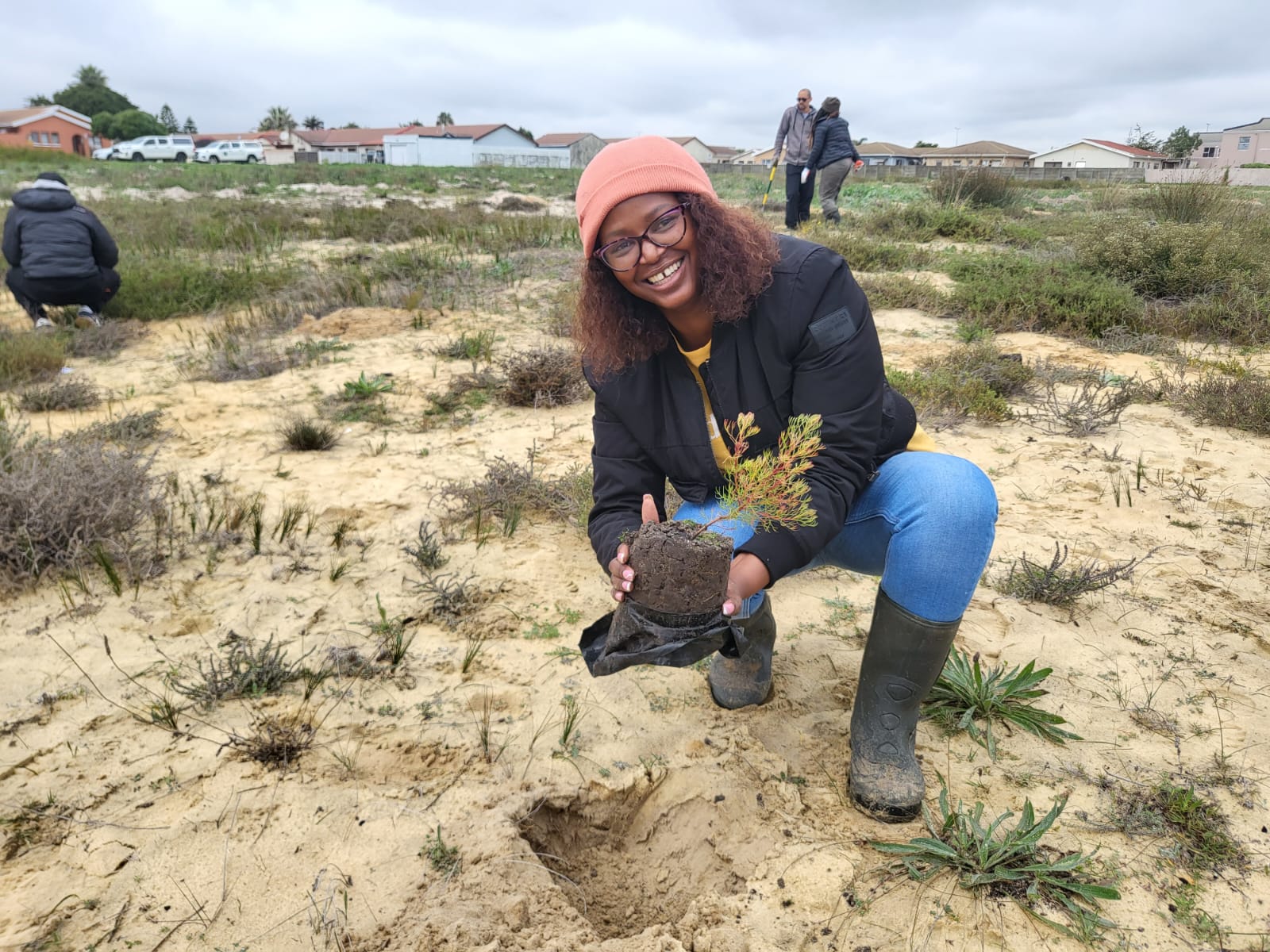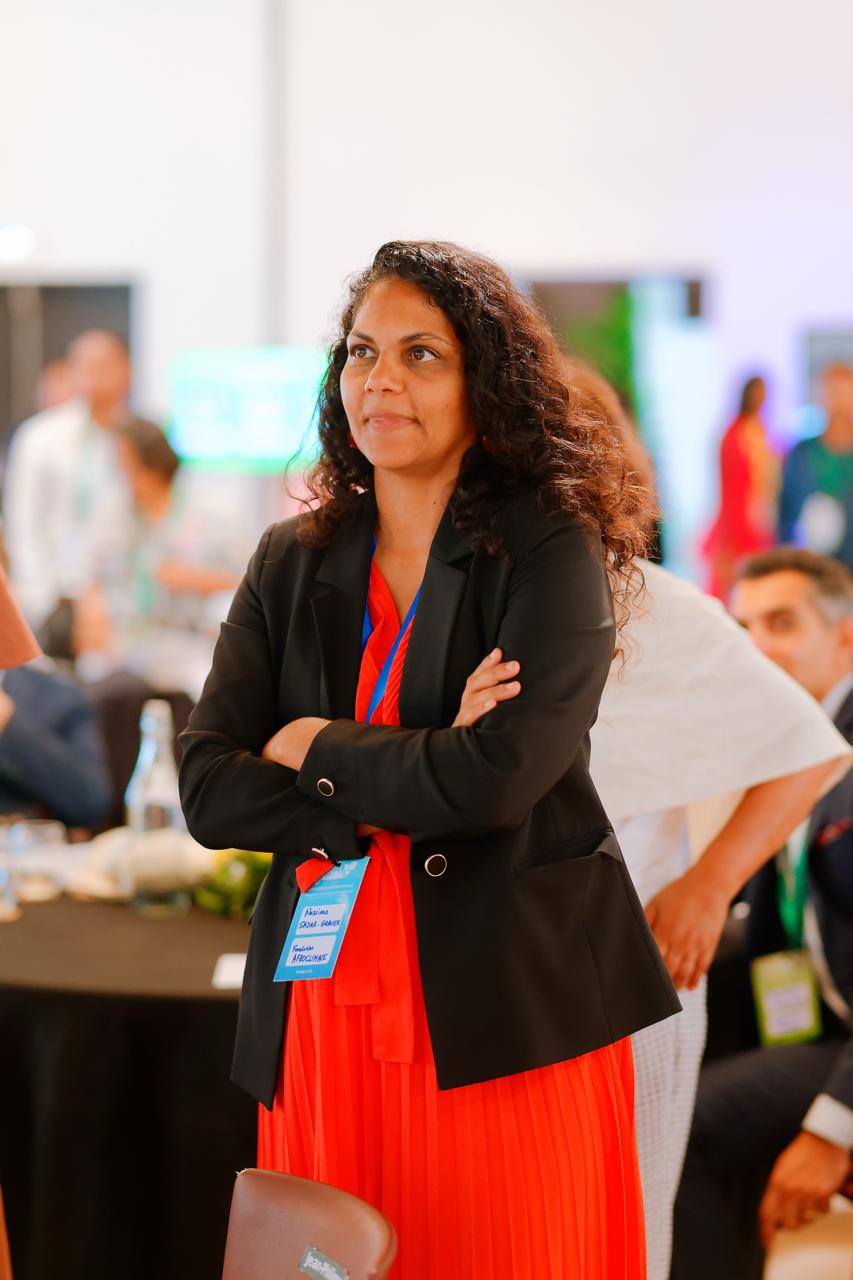This interview is part of a series profiling the stories of the 2024 WE Africa leadership programme fellows, African women in the environmental conservation sector who are showing up with a strong back, soft front, and wild heart.
***
Long, long ago, before globalisation, before urbanisation, before colonialism, the indigenous people of Africa lived with nature as one. Forests were revered as sacred sanctuaries of wisdom. Mountains were mighty dwelling places of gods.
Then came the colonisers. Driven by greed and a hunger for conquest, they transformed the land from a communal blessing into a commodity. Fences were erected, and ancestral communities were forcibly removed from their homes. Their wisdom for caring for the land was dismissed as primitive. Their access to these spaces became an offence. Punishable by law.
When the colonial powers left, the new African governments continued with more of the same. Cities expanded, and the race for monetary wealth superseded all else.

Even though Moreangels Mbizah's hometown was just a few kilometres from Zimbabwe's second-largest national park, she, like many low to middle-income families in Zimbabwe, never had the opportunity to see wildlife because it was mostly confined to national parks. With the high costs of off-road vehicles, entry fees, and accommodation, visiting these parks just wasn't a realistic “to-do item” on the lists of most Zimbabweans.
And so, Moreangels' childhood was spent in a concrete jungle. That's not to say it was a bad childhood—far from it.
"My childhood was just kind of average," she says.
What does that mean exactly? I ask.
"I grew up with my mum, dad, younger sister, and three younger brothers. I wasn't super social, so I spent a lot of time at home watching TV. After school, that was always the first thing I did—sit down and watch my shows," she says.
Given her chosen line of work, I ask her if these were nature shows.
"No," she says categorically, “I did not even know anything about conservation when I was young. I liked helping people, so my dream was to become a psychologist. Looking back, with the right guidance, I might have ended up following that path.”
Thankfully, that guidance never came. Because if it had, Africa's environmental sector would be missing a vital player: Moreangels Mbizah—and what a tragedy that would have been.
***
Back in school, Moreangels was good at science, so choosing to study Applied Environmental Science as her first University degree course made sense. She went on to work as a teaching assistant at the University of Zimbabwe before enrolling in a Master's program in Tropical Resource Ecology. At this point, her interest in conservation was ignited. "I chose to study African wild dogs because I had read about them and got fascinated by their social life," she says.
Her research took her into the wild—for the very first time. And she was captivated. “I felt an instant connection with nature and knew this was what I was meant to do.”
***
Three years after completing her Master's degree, Moreangels went on to pursue her PhD at Oxford University, focusing on lions. It was then that she started to really see the challenges in the conservation field on her home continent.
And so, Moreangels returned to Zimbabwe with a freshly minted PhD in her back pocket and a fierce determination to shake things up. Her first move was to start her own conservation organisation, Wildlife Conservation Action. She explains her why:
"I started my organisation because I saw a lot that needed to change in Zimbabwe's conservation sector. For one, it was mostly dominated by white people and foreigners. The only locals you’d find in the sector were those working for Zimbabwe Parks and Wildlife Management Authority, our country's wildlife authority. I wanted to change that and create more opportunities for young black Zimbabweans to be involved in conserving their natural resources.
Another big issue was how conservation in Zimbabwe was mostly about species, with little to no involvement of the local communities who actually live alongside wildlife. I wanted to shift the focus to include these communities and give them a real say in conservation efforts. I also wanted to create job opportunities for the next generation of young Zimbabweans who could step into this space and make a difference.
And then there was the growing problem of human-wildlife conflict. Cases were rising all over the country, and not much was being done to address it. I knew this was an area where I could help."
For many, stepping into uncharted territory is a daunting challenge. But to enter with the audacious goal of challenging the status quo? That's a whole new level of bravery. Moreangels wasn't someone with wealth or influence—she was young, she was Black and she was a woman. The idea of someone like her trying to start a conservation organisation was almost unimaginable at the time.

An outlier. That is who Moreangels was.
The one thing she thought she could count on was getting support from local authorities. That didn't happen. She felt alone, lonely and a little lost. "There were times when conservation-related events would happen, and I wouldn't be invited. I'd only find out about them after the fact. It was like an elite club that didn't want to let anyone in who wasn't already part of it," Moreangels recalls.
Things were tough, and they only got tougher. So tough, in fact, that Moreangels abandoned her dream. "People discouraged me from starting my own organisation and told me to just get a job, and I listened. I took a job," she says.
Looking back, she admits that this move slowed her down. "I feel like that period held me back because while I was focused on my job, my organisation wasn't growing."
Upon reflecting on this fact, Moreangels decided it was time to regroup.
"I had promised myself when I went to do my PhD that I would come back home and not just contribute to the conservation sector but also change how things were done. So, even if I failed, I would have at least given it my best shot. And I think that would have been enough for me," Moreangels shares.
That resolve made all the difference.
With a somewhat bloodied nose but newfound resolve, Moreangels got back into the ring, ready to reclaim a dream that circumstances, naysayers and the status quo had attempted to steal from her. But even then, she spent a considerable amount of time and energy trying to figure out how to make it work in a system that wasn't built for someone like her.
"At first, I was really focused on trying to see how I could fit in because that's what you do, especially when you are still young and inexperienced. You try to live up to the expectations of those around you; you try to be who they want you to be," she shares. "But as you grow older, you realise that pretending to be someone you're not takes so much energy, and it's never worth it, so I just started doing things my way.”
Indeed, one of the biggest lessons she learned from this season of her life was the power and importance of staying true to oneself. "I started taking pride in being a Black African woman, especially in a space where there are so many misconceptions and preconceived ideas about what it means to be Black, to be African, or to be a woman,” she says.
The shifted mindset allowed her to push forward on her own terms, no matter how many challenges lay ahead.
***
Fifteen years later, Moreangels reflects on her journey with pride. "It was tough, but it was worth it," she says.
One of the most significant successes? Her team has reduced human-wildlife conflict by more than 61.3% in one area they've worked in for the past four years. "To see that kind of change is huge," she says. “It means a lot that the local communities now feel like someone cares about them. And that's led to a shift in how the community views wildlife.”
Another success is the growth of her team. What started as just one person and a dream has grown to 39 people strong. "Being able to provide jobs and give young Black Zimbabweans opportunities in conservation is a dream come true for me," she says.
One of the programs Moreangels is especially proud of focuses on taking children—especially those living near wildlife—to national parks to interact with nature in positive ways. Her own childhood didn't give her that, but she's determined to rewrite the story for others. By helping children connect with their natural heritage, she's showing them that conservation can be a part of who they are, something they can and should be proud of and care for in ways that make sense to them.
***
The following statement was written and shared by Moreangels Mbizah during her graduation from the WE Africa Leadership Program in December 2024:
- What if I shine,
- In that moment when I show up as my authentic self
- And with courage take that first step in making the impossible possible
- What if I shine
- When I embrace my rough edges
- The parts of me that I always try to hide
- The parts that make me different
- What if I shine
- When I stop running
- When I stop hiding
- When I become brave
- When I step forward
- When I stand up
- For what I believe in
- What if I shine




